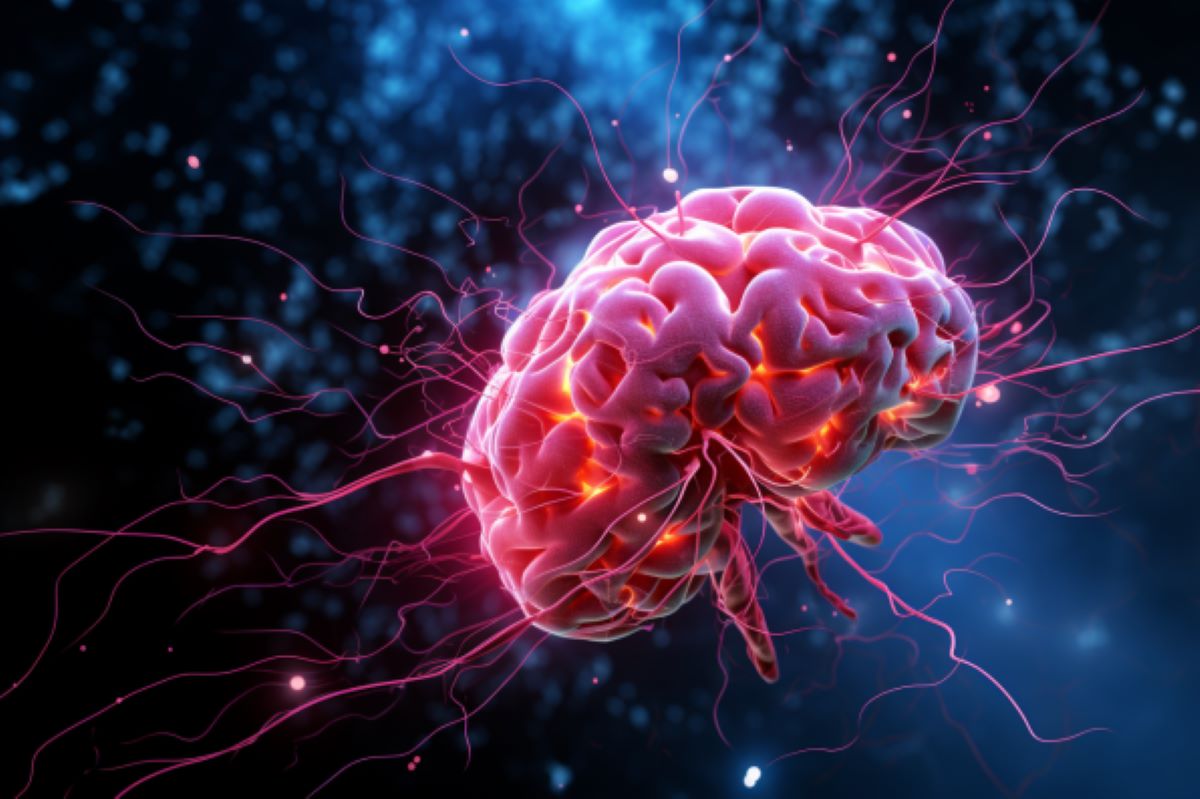Summary: The blood-brain barrier (BBB) in carpenter ants isn’t just a protective boundary, but actively shapes ant behavior.
The BBB produces an enzyme called Juvenile hormone esterase (Jhe) that degrades the Juvenile Hormone (JH3), which promotes foraging behavior. The presence and degradation of JH3 by the BBB helps determine whether an ant becomes a forager or soldier.
Interestingly, similar mechanisms might influence mouse behavior, hinting at broader implications beyond ants.
Key Facts:
- Carpenter ants’ BBB produces the Jhe enzyme, which degrades the behavior-influencing hormone JH3.
- Variations in this enzyme’s levels in the BBB result in ants taking on different roles like foragers or soldiers.
- The same mechanism could apply in other species, with preliminary data showing mice BBB cells also degrading hormones, including testosterone.
Source: Cell Press
In many animals, including ants, the blood-brain barrier (BBB) ensures normal brain function by controlling the movement of various substances in and out of the brain.
Now, researchers reporting in the journal Cell on September 7 have made the unexpected discovery that the BBB in carpenter ants plays an active role in controlling behavior that’s essential to the function of entire ant colonies. The key is production in the BBB of a particular hormone-degrading enzyme.

“In these ants, the BBB produces a special version of the enzyme Juvenile hormone esterase (Jhe), which degrades Juvenile Hormone (JH3),” says Karl Glastad, the co-lead author along with Linyang Ju, both in the lab of senior author Shelley Berger in the Perelman School of Medicine at the University of Pennsylvania in Philadelphia.
“Typically, Jhe enzymes are secreted into the hemolymph (insect blood); however the copy produced by the ant BBB is retained in the cells of the BBB where it controls the amount of JH3 hormone entering the brain of the worker ant,” Ju says.
JH3 hormone is known to promote foraging among social insect workers. Different types of worker ants within the same colony do very different “jobs.” The new findings show that this results, in part, from different levels of the JH3-degrading enzyme in their BBB, leading to different levels of the hormone JH3 in the brain.
The finding underscores how a single protein expressed in the right place at the right time can have major effects on individual behaviors underlying complex societies, the researchers say. And it isn’t just ants; the researchers already have evidence that similar mechanisms may play a role in mouse behavior, too.
The researchers made the discovery after applying single-cell RNA sequencing to understand differences in gene activity across cells in the brain in two ant behavioral castes: foragers and soldiers. Their analysis revealed that the gene encoding Jhe, the degrading enzyme for the hormone JH3, was found only in BBB cells. It also showed striking differences between the BBB cells of foragers and soldiers. They wanted to know more about what it meant for ant behavior.
Their studies show that intentional manipulation of the level of the Jhe degrading enzyme reprograms the brain and complex behaviors that differ between ant castes, switching the soldier caste to foraging behavior.
They went on to show in Drosophila fruit flies that Jhe enzyme is naturally outside of cells. When they made the fly BBB express the ant version of the Jhe enzyme, they saw behavioral changes similar to those observed in the ants.
“Differences in expression of this single enzyme [Jhe] between the BBB of different castes control the hugely important decision to forage or to stay inside the nest for defense as soldiers and can even reprogram flies to change food-seeking behavior,” Glastad said.
To see if similar mechanisms apply in other animals, the researchers also analyzed published data from a panel of mouse endothelial cells, including those from the mouse BBB. They found that mouse BBB cells also expressed several hormone-degrading enzymes at higher levels than any other endothelial cell type. Most notably, these include enzymes that degrade the hormone testosterone.
“This suggests that gating hormone entry into the brain by the BBB is a function extending well beyond ants and that gating a hormone differentially between behavioral conditions as seen in ants may exist in other organisms, including mammals,” Berger says.
In future studies, the researchers say they want to learn more about the origin and prevalence of this mechanism and whether it is a convergent strategy to control behavior outside of ants.
Funding: This work was supported by the NIH and NSF.
About this neuroscience and behavior research news
Author: Kristopher Benke
Source: Cell Press
Contact: Kristopher Benke – Cell Press
Image: The image is credited to Neuroscience News
Original Research: Open access.
“Hormonal gatekeeping via the blood brain barrier governs caste specific behavior in ants” by Karl Glastad et al. Cell
Abstract
Hormonal gatekeeping via the blood brain barrier governs caste specific behavior in ants
Highlights
- Single-cell RNA-seq identifies hormone-degrading esterase CfJhe localized to ant BBB
- CfJhe expression is high in non-foraging Major-worker BBB cells leading to low JH3
- Ectopic expression of CfJhe in fly leads to loss of foraging-like behavior
- KD of CfJhe leads to acquisition of foraging in Major workers
Summary
Here, we reveal an unanticipated role of the blood-brain barrier (BBB) in regulating complex social behavior in ants. Using scRNA-seq, we find localization in the BBB of a key hormone-degrading enzyme called juvenile hormone esterase (Jhe), and we show that this localization governs the level of juvenile hormone (JH3) entering the brain.
Manipulation of the Jhe level reprograms the brain transcriptome between ant castes. Although ant Jhe is retained and functions intracellularly within the BBB, we show that Drosophila Jhe is naturally extracellular. Heterologous expression of ant Jhe into the Drosophila BBB alters behavior in fly to mimic what is seen in ants.
Most strikingly, manipulation of Jhe levels in ants reprograms complex behavior between worker castes.
Our study thus uncovers a remarkable, potentially conserved role of the BBB serving as a molecular gatekeeper for a neurohormonal pathway that regulates social behavior.






